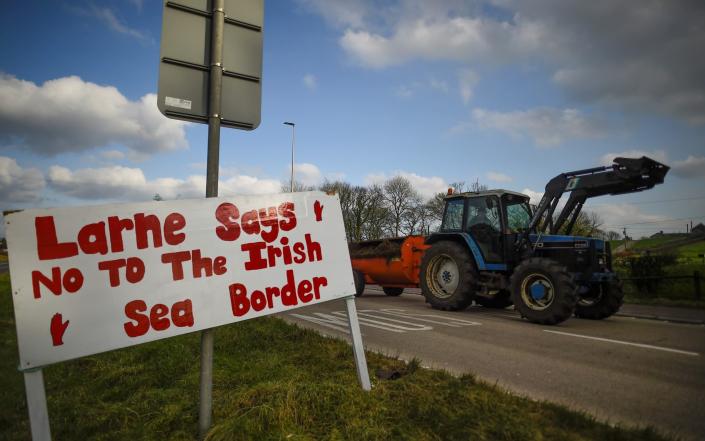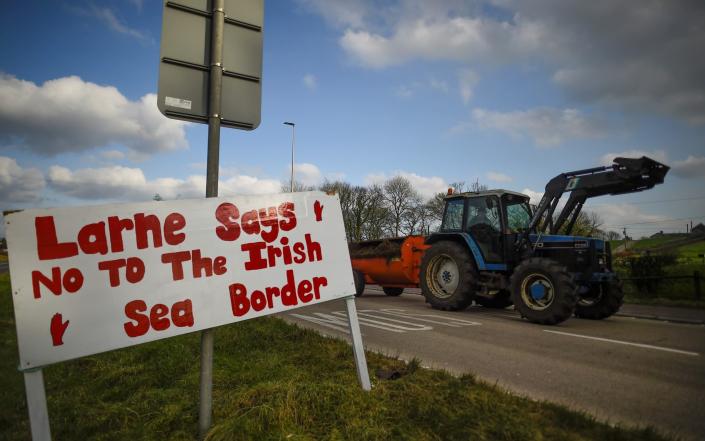
It wouldn’t be a Brexit negotiation without a crash, bang, wallop moment to create space for an eventual deal.
And the current wrangle over the Northern Ireland Protocol is no different, with both Brussels and London on a war-footing, or that’s what they want you to believe.
For many in the Belgian capital, Boris Johnson’s plan to unilaterally override the province’s post-Brexit border arrangements is an egregious breach of international law, akin to Vladimir Putin’s brutal invasion of Ukraine.
Ministers in Westminster have taken an entirely opposite stance; their actions are required to protect the hard-won gains of the Good Friday peace agreement, a pact the EU’s intransigence is putting in jeopardy.
The result of this cross-Channel differing opinion? A metaphorical nuclear explosion that has left a devastating cloud lingering over our already stricken relations.
If you slowly wipe away the dust, an environment fit for brokering a deal – well more of a political fudge – will start to emerge.
Tricky waters of domestic politics
But there are certain figures who London and Brussels want to keep out of the picture.
While both sides hate to admit it, navigating the tricky waters of domestic politics is absolutely vital to reaching an international agreement.
Mr Johnson has the European Research Group of Brexiteer MPs to placate, while Maros Sefcovic, the EU’s negotiator, has France and Germany to keep on side.
The hardline demands of his MPs has left the Prime Minister in a bind but the same is true of Mr Sefcovic, who has to constantly satisfy the Brit-bashing politics of Paris and Berlin.
Peeling back the onion layer of hardened rhetoric reveals that both the EU and UK aren’t actually that far apart and a deal might in fact be possible.
Both sides are talking tough but have insisted on leaving the door open for further talks on the Protocol, with a negotiated solution the best option.
Announcing three separate lawsuits against Britain, Mr Sefcovic pulled his punches and refused to use the most draconian weapons in his arsenal to punish the Government’s alleged misdemeanour.
The first is an old case, paused last year, on Downing Street’s decision to unilaterally suspend checks on food, plants and pets in a breach of EU rules.
Failure on customs data
The second and third are new cases in response to Britain’s failure to properly staff border inspection posts in Northern Ireland and a failure to share adequate levels of customs data.
Most importantly, none of these so-called infringement proceedings are to do with the alleged breach of international law with the introduction of the Northern Ireland Protocol Bill.
To keep the door open, Brussels instead revisited a series of concessions it offered in October 2021, spelling out how its plans of a trusted trader system and “express lanes” between Great Britain and Northern Ireland could dramatically reduce the need for trade checks.
This is not dissimilar to Britain’s proposal for a “green lane”, which would let products destined for consumption in the province arrive with little to no friction at all.
A senior official described the difference between the two concepts as a matter of 26 tick boxes that can easily be resolved with simple negotiations.
While there are huge chunks of both sides’ plans the other does not like, that has always been the case in Brexit negotiations. But eventually the clouds clear and a deal is signed.




